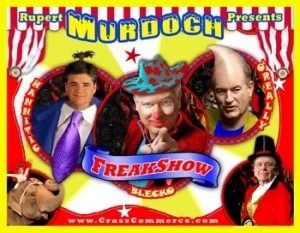Much of Fitzrovia was developed by minor landowners, and this led to a predominance of small and irregular streets – in comparison with neighbouring districts like Marylebone and Bloomsbury, which were dominated by one or two landowners, and were thus developed more schematically, with stronger grid patterns and a greater number of squares.
I like that part about the “greater number number of squares” in Bloomsbury. I mean, compare Lytton Strachey to Prince Monolulu and I’m sure you will understand my amusement. My friend Tree was in his thirties when Monolulu passed away in 1965, a victim of the National Health Service. I wonder if their paths ever crossed.
God has raised his whip of Hell
That you be no longer weak
That out of anguish, you may speak
That out of anguish, you may speak well.
– Anna Wickham, Fitzrovian (no square)
Sensitizing myself, in an attempt to become “alert to the irony of aging,” I ran across one April Winchell, the 21st funniest person in Los Angeles. It’s been a long year, and I could use a few good laughs. I’ll be plumbing Ms. Winchell’s blog for just that purpose.
Lest we linger too long on Ms. Winchell’s plumbing, I’d like to underscore the happy coincidence of Anna Wickham (AW) and April Winchell (AW) bracketing the 20th century with their work. I’m sure if Ms. Wickham were with us today that she would be a blogger too, although perhaps projecting a darker vision than Ms. Winchell’s own. Regarding bloggers, one is reminded of Henri Tajfel’s observations:
… people have an inbuilt tendency to categorize themselves into one or more ingroups, building a part of their identity on the basis of membership of that group and enforcing boundaries with other groups.
Social identity theory suggests that people identify with groups in such a way as to maximize positive distinctiveness; groups offer both identity (they tell us who we are) and self-esteem (they make us feel good about ourselves).
Or as Kurt Vonnegut’s study of minimum group paradigms was so aptly illustrated in Cat’s Cradle:
“My God,” she said, “are you a hoosier?”
I admitted I was.
“I’m a Hoosier, too,” she crowed. “Nobody has to be ashamed of being a Hoosier.”
“I’m not,” I said. “I never knew anybody who was.”
{ Comments on this entry are closed }

